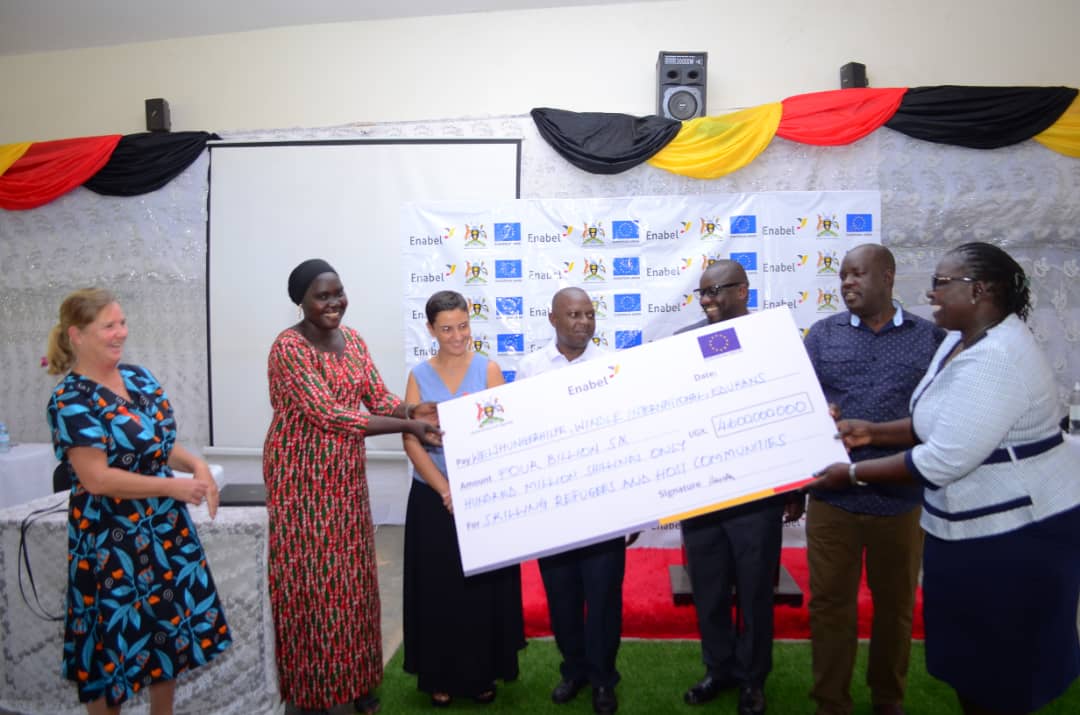
The European Union under the European Union Emergency Trust Fund for Africa has awarded three organisations grants totaling to 4.6 billion shillings to skill refugees and host communities in West Nile & Kiryadongo. Recipients include; Edukans Education Services, Windle International and Welthungerhilfe.
The funds provided through the Support to Skilling Uganda (SSU) project implemented by Enabel and Ministry of Education will facilitate the training of 1210 refugees and their Ugandan hosts in Yumbe, Arua, Madi Okollo, Terego, Adjumani and Kiryadongo.
Enabel Country Representative Tom Vanneste says the project started in 2017 and has to date trained more than 5000 refugee and host community youth, women and girls.
“Tracer studies indicate that nearly 7 out of 10 trained people either get employed or start their own enterprises within six months after graduation,” Vanneste says.
He attributed the high employability rate to deliberate efforts taken to align training with labour market needs.
“The EU is proud to be one of the key partners of Uganda in supporting the national refugee response. Through this project, we will support increased access to quality skills development through vocational training and provision of entrepreneurial skills. This action contributes to the development of sustainable livelihoods through creation of income generating activities for both refugee and host communities,” said Nadia Cannata, Head of Section for Sustainable Development, Delegation of the European Union to Uganda.
The Support to Skilling Uganda project aims to increase access to quality skills development through vocational & entrepreneurship skills training, provision of startup kits and post training business development support.
The grants award ceremony at National Teachers’ College Muni in Arua City also featured a photo exhibition to commemorate the work of the EU and the Government of Uganda in support of the national refugee response. The exhibition presented photography of EU interventions in refugee hosting districts, which highlight the EU contribution towards building resilience and transforming lives. The photo exhibition was free and open to the public all day on 1 December.
Refugee-response initiatives funded by the European Union address a wide spectrum of issues. These include: humanitarian aid and civil protection; water, hygiene and sanitation; cash and vouchers transfer; strengthening the capacity of local governments to contribute to improved service delivery; supporting income generating activities for refugees and host communities; increased environmental and natural resources protection by restoring and conserving degraded natural resources; and accelerating access to justice and protection for vulnerable groups.





